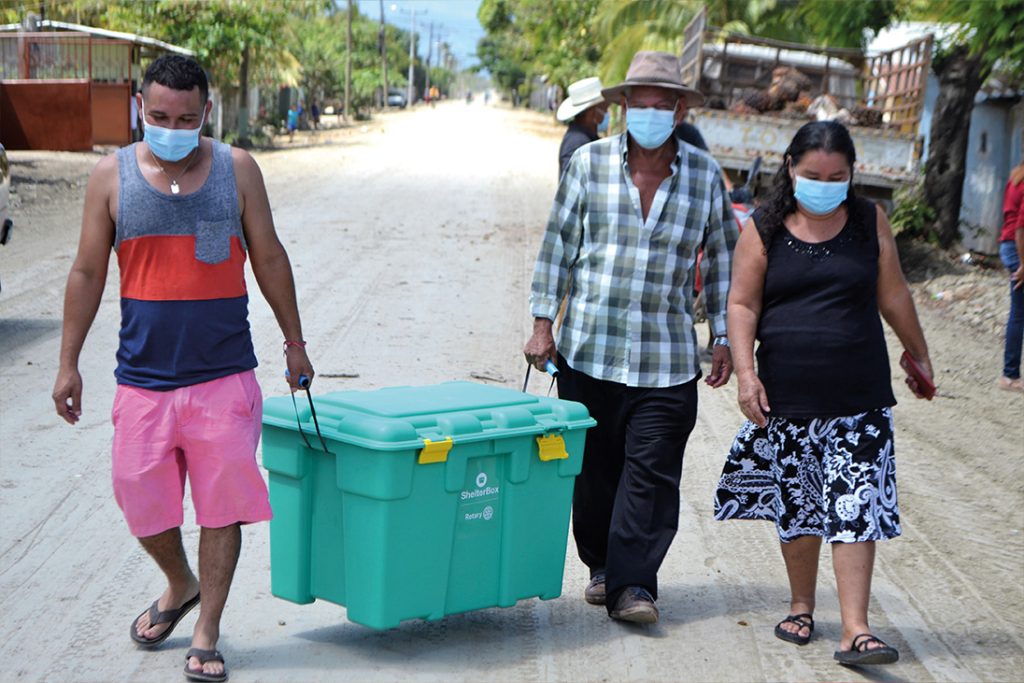The 2020 Atlantic hurricane season was the most active on record, producing an enormous 30 named storms – 14 of them hurricanes.
The next year saw another above-average season. In fact, 2021 was a terrible year for disasters. July 2021 saw an unprecedented number of extreme flooding events everywhere around the globe – from India to Western Europe, as well as devastating wildfires in places such as Cyprus, Turkey and the USA.
Looking to the year ahead, experts are predicting yet another above-average Atlantic Hurricane season, the seventh in a row.
Listen to this article
When does the hurricane season start and end?
The Atlantic hurricane season runs from the 1st of June to the 30th of November each year. It covers the Atlantic Ocean, Gulf of Mexico and the Caribbean Sea.
Hurricanes, typhoons and cyclones are all tropical storms, the only difference is where they originate from: hurricanes form in the tropical Atlantic and the Eastern Pacific Ocean, typhoons in the West Pacific Ocean and cyclones form south of the equator, off the coast of places such as Australia and Madagascar.
In 2021, the Atlantic hurricane season was the third most active on record. By early August, we had already seen five named storms, including one hurricane. The first, Elsa, formed on July 1st, seriously affected parts of St Lucia, Cuba, Florida, and the Dominican Republic.
2022 Atlantic hurricane season predictions:
This year, the Colorado State University is forecasting 19 named storms and nine hurricanes, four of which are predicted to be major hurricanes. Despite the prediction of this season being well-above-average yet again, we still do not know with certainty if this year will be as bad as the two previous years, but we want to be prepared.
At ShelterBox we are dedicated to supporting families after disaster, but we can’t do it without Rotarians.”
How do hurricanes affect communities?
An abnormally active hurricane season is not good news for families living in at-risk locations in the Caribbean and the Gulf of Mexico.
Imagine having to protect yourself from a global pandemic that has affected hundreds of thousands of lives already, whilst also preparing for potentially some of the most dangerous hurricanes of the decade. It’s unimaginable.
Here at ShelterBox, we are constantly on standby, monitoring weather events using a number of alert systems. For hurricanes, there are some more bespoke monitoring systems, so we keep an eye on the US’s National Hurricane Centre.


Shelterbox has supported countries all over the world in their responses to natural disasters such as hurricanes.
How does ShelterBox respond to hurricanes?
There are always challenges when responding to hurricanes, the widespread destruction can affect families in serious ways – both physically through losing loved ones, and mentally with trauma.
In addition, infrastructure damage can affect not just ports, airports and roads but can also present extreme challenges for governments as they try to support their citizens.
The past two years have presented further challenges: the coronavirus pandemic has meant that it has been more challenging for our response teams to travel to hurricane-hit countries.
However, being official project partners with Rotary International has meant that on-the-ground assistance from local Rotary clubs has filled this gap and proven invaluable.
The Rotary Club of San Pedro Sula played a vital role in our 2020 Honduras response, taking on the complicated task of getting our shelter kits into the country and organising the unloading of eleven 40ft containers.
They also utilised their Rotary networks and coordinated other Rotary clubs around the district. This approach, combined with our strategy of storing stock in various locations globally, means we are still able to get shelter to families who are in a vulnerable position, no matter what.
Imagine having to protect yourself from a global pandemic that has affected hundreds of thousands of lives already, whilst also preparing for potentially some of the most dangerous hurricanes of the decade.”
Does climate change cause more hurricanes?
Whilst climate change is not increasing the number of hurricanes, the rising temperatures are causing storms to become much more intense and have a far more devastating impact.
As a result, in recent years, we have seen far more of the highest possible categories of storms – Categories 4 and 5. But it’s not just catastrophic hurricanes, it’s floods, droughts, wildfires; the list is long.
At ShelterBox we are dedicated to supporting families after disaster, but we can’t do it without Rotarians.
Vital support from Rotary clubs in Great Britain & Ireland will help us to be ready to respond when disaster inevitably strikes, and practical assistance from clubs in the affected countries means our help will get to those who need it most.
To hear more about ShelterBox’s life-saving work, and updates from around the world, why not book a speaker for your club or event? Just fill out the form via this link or, alternatively, call Shelterbox on 01872 302600.
You can find the full Colorado State University Report here.


























































